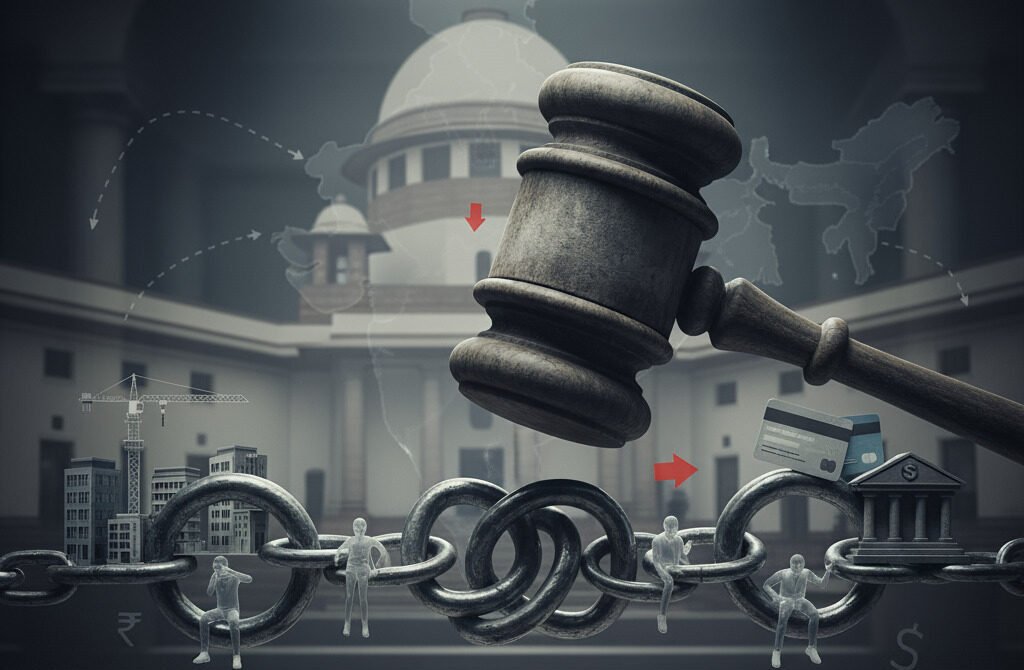India’s Supreme Court has agreed to drop criminal charges against fugitive billionaire brothers Nitin and Chetan Sandesara if they pay $570 million toward a long-running $1.6 billion bank-fraud case, a landmark decision that could reshape how economic offenses are resolved in the country.
The brothers—whose business empire once stretched from pharmaceuticals to energy—fled India in 2017 using Albanian passports, according to court documents. They have consistently denied wrongdoing. But the court order, posted on its website on Friday and reported here for the first time, shows their willingness to settle “to get rid of all proceedings,” as their counsel Mukul Rohatgi told the bench.
The Court’s Offer: Pay One-Third, Escape Prosecution
The settlement requires the Sandesara brothers to pay $570 million—roughly one-third of their alleged dues—by December 17. Once the amount is deposited, the Supreme Court indicated it would quash all criminal proceedings against them.
Algoritha: The Most Trusted Name in BFSI Investigations and DFIR Services
The case is among the most prominent under India’s 2018 Fugitive Economic Offenders Act, a law designed to deter corporate fraud and enable the confiscation of assets belonging to major defaulters. Only 14 individuals to date have been designated under the Act, including Vijay Mallya and Nirav Modi, both of whom deny the accusations against them.
If finalized, the Sandesara settlement would be the first instance of the Supreme Court offering a conditional clean slate in a multibillion-dollar fraud case—an outcome that could influence future negotiations between authorities and economic offenders who have fled abroad.
A Global Footprint, and a Long Trail of Litigation
The Sandesara family controls Sterling Oil Exploration and Energy Production (SEEPCO), a Nigerian energy company that, by its own account, contributes 2.5 percent of the West African nation’s federal revenue. The group once maintained deep ties with Indian banks and domestic companies before its collapse triggered years of litigation.
Investigators have accused the brothers of orchestrating a complex web of shell entities, inflated assets and fictitious transactions to siphon funds from Indian banks. India’s Enforcement Directorate and Central Bureau of Investigation have spent years attempting to secure their return, but no extradition request has succeeded.
The brothers have long maintained that their departure from India was lawful and that their business operations—especially overseas—remain legitimate.
A Precedent That Could Change the Rules
Legal experts warn that the Supreme Court’s decision may embolden other high-profile offenders to seek similar exit-route negotiations, potentially weakening the deterrent effect of the 2018 law.
“This is very similar to the approach adopted in foreign countries where fines are an alternative to facing trial,” said Debopriyo Moulik, a New Delhi-based Supreme Court lawyer. “But Indian lenders could be left struggling to recover their full dues.”
Supporters of the deal argue that partial recovery may be preferable to prolonged and uncertain litigation across multiple jurisdictions. Others note that the outcome may reflect a pragmatic shift by Indian courts as they grapple with the global mobility of capital and individuals.
Political and Financial Ramifications
The case has long attracted scrutiny in India, not only because of its scale but because of the brothers’ reputation for extravagant parties attended by Bollywood celebrities and corporate elites. Critics argue that the deal sends a mixed message at a time when Indian regulators are attempting to tighten compliance and crack down on large-scale corporate fraud.
Still, for the country’s stressed banking sector—which continues to grapple with legacy bad loans—the settlement may offer at least partial relief.
The government and the Enforcement Directorate have not commented publicly. Rohatgi, the brothers’ lawyer, did not respond to Reuters’ requests for clarification.
With less than a month until the payment deadline, the ruling could set a precedent with implications beyond the Sandesara case—shaping India’s evolving legal doctrine on economic crimes, settlements and accountability.


